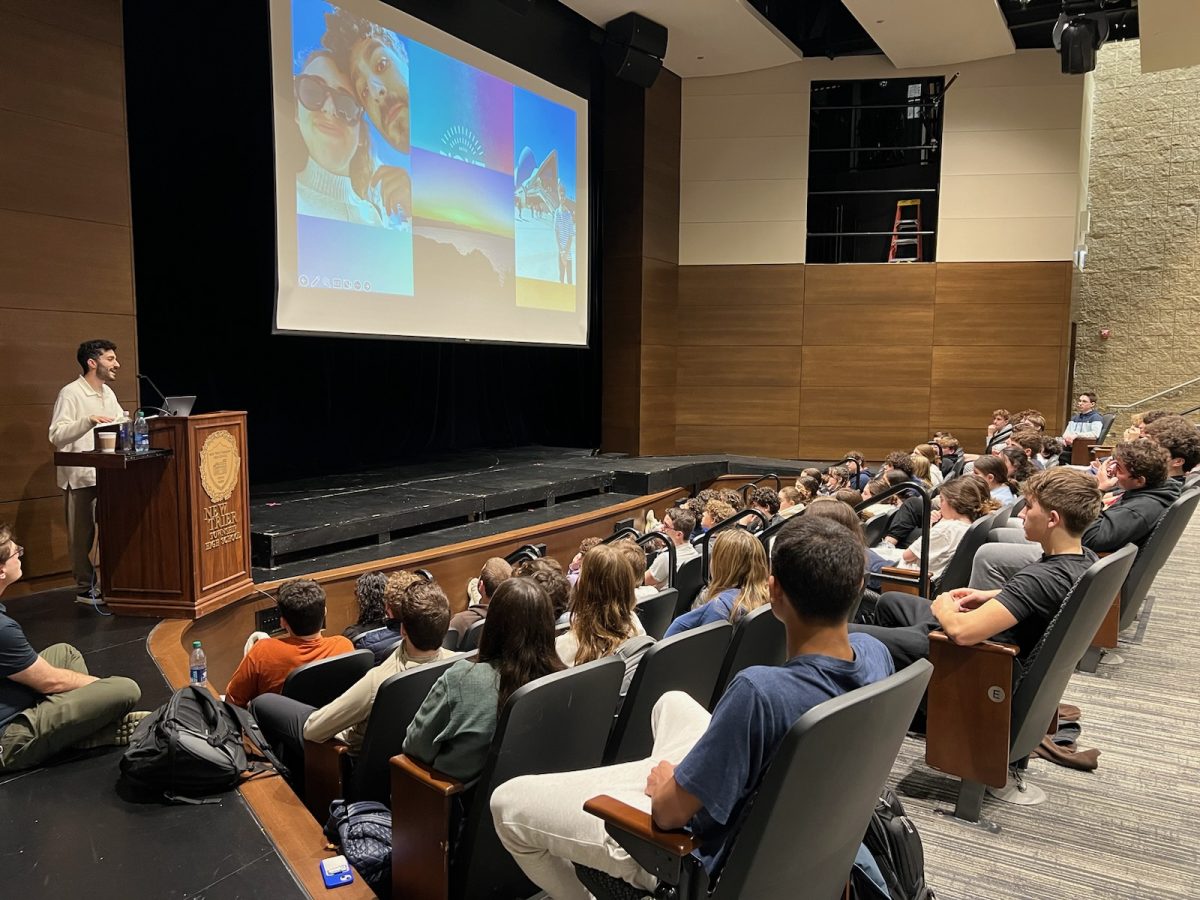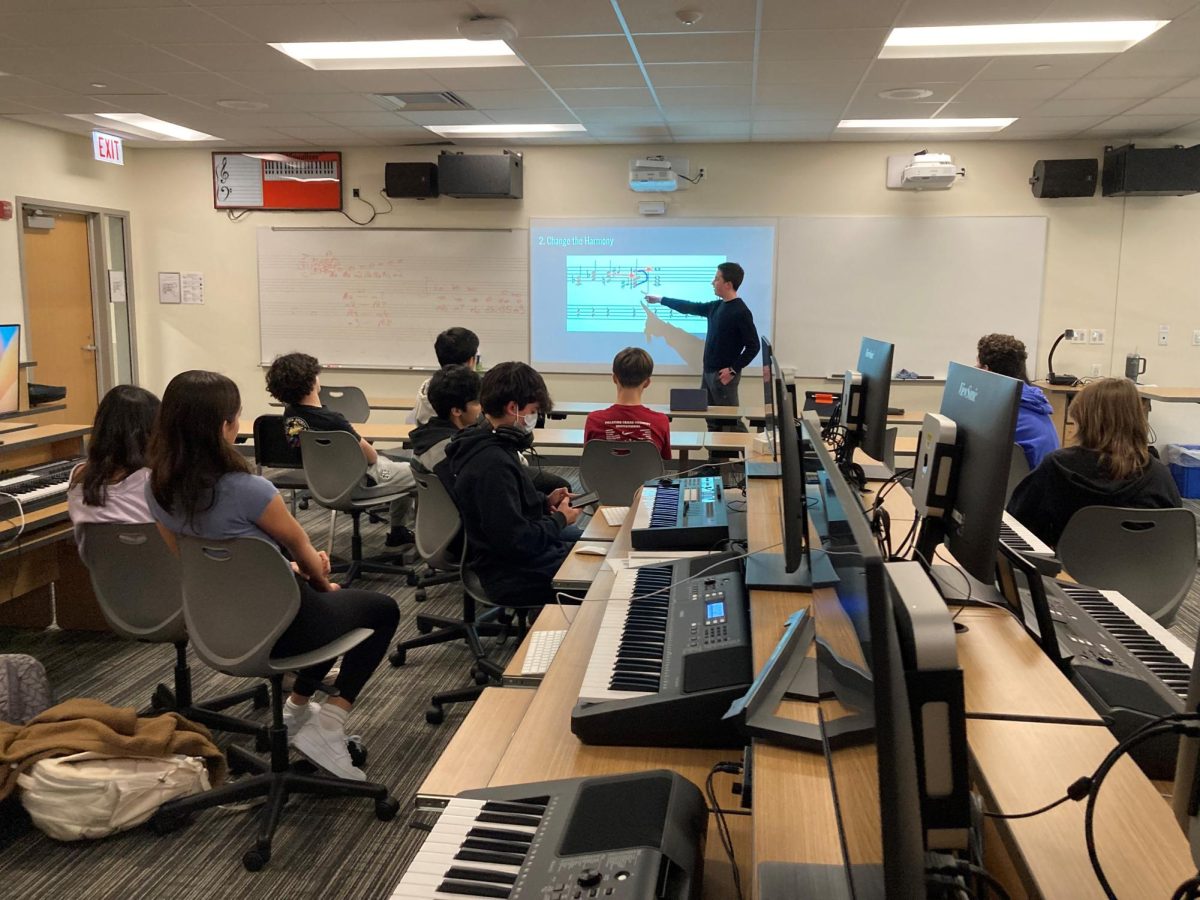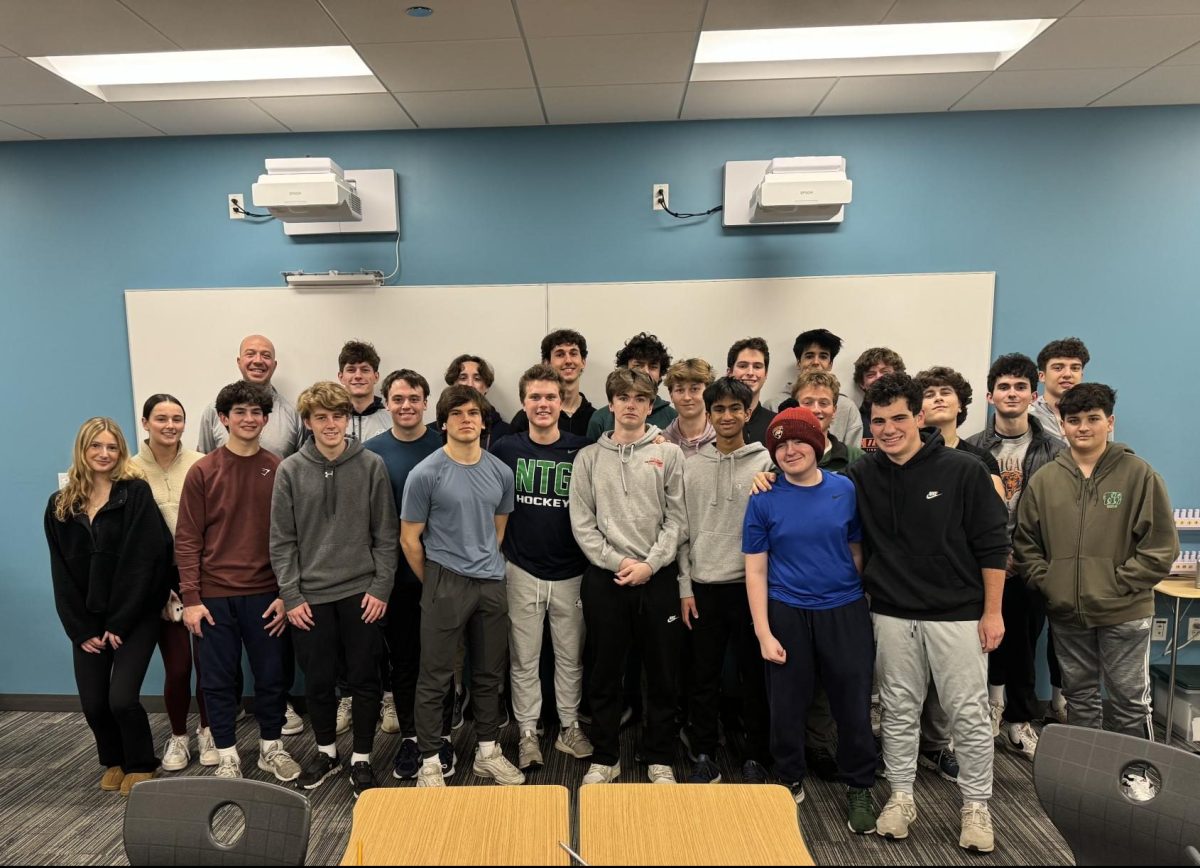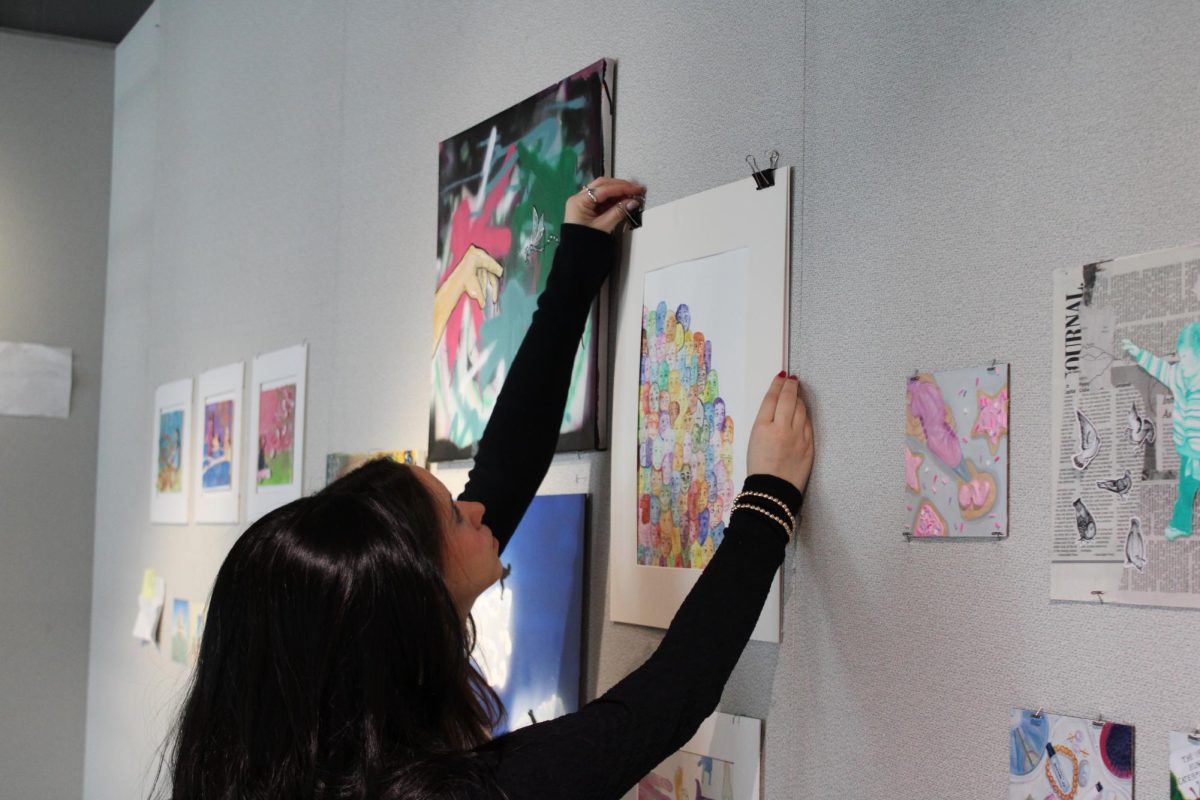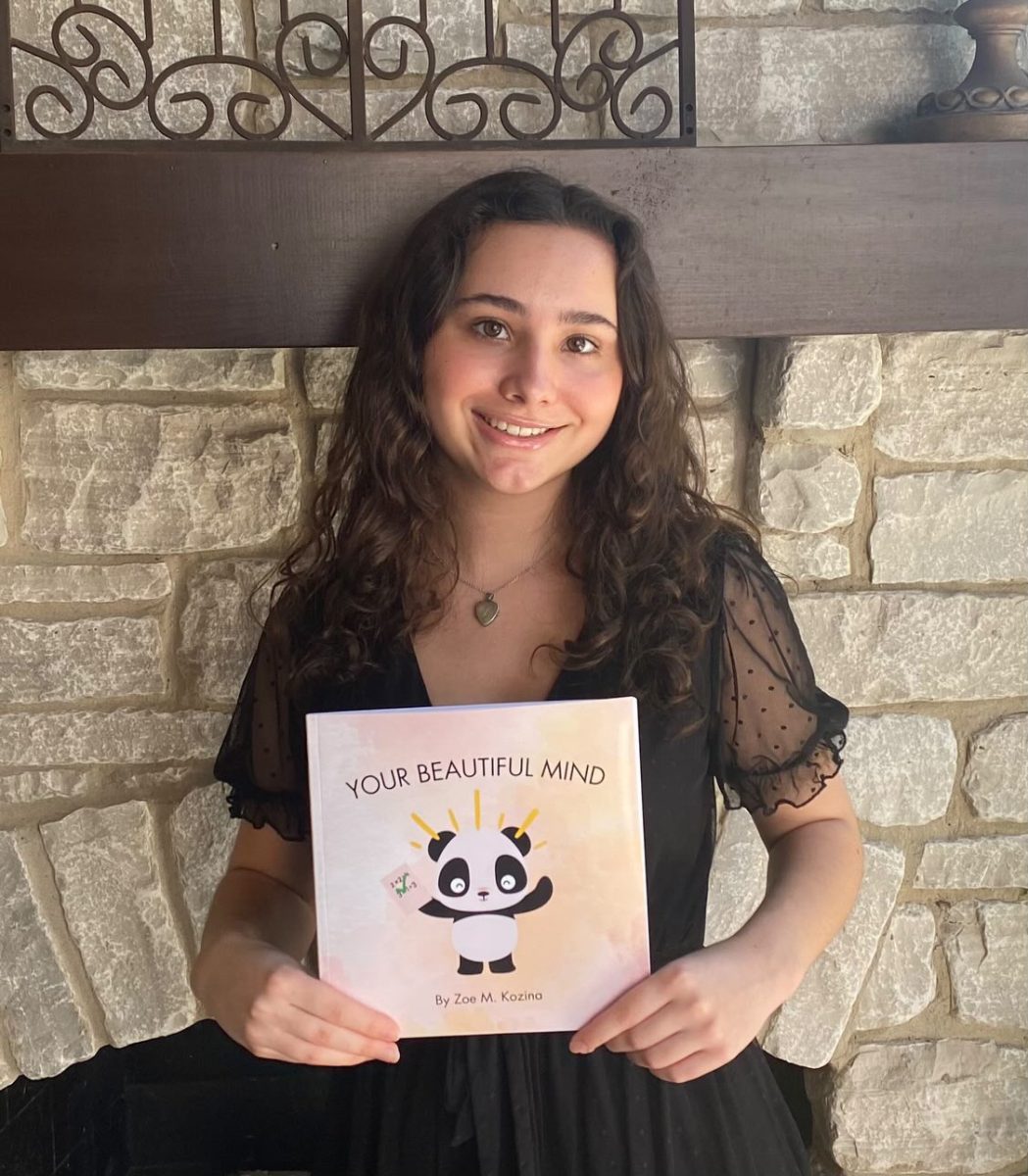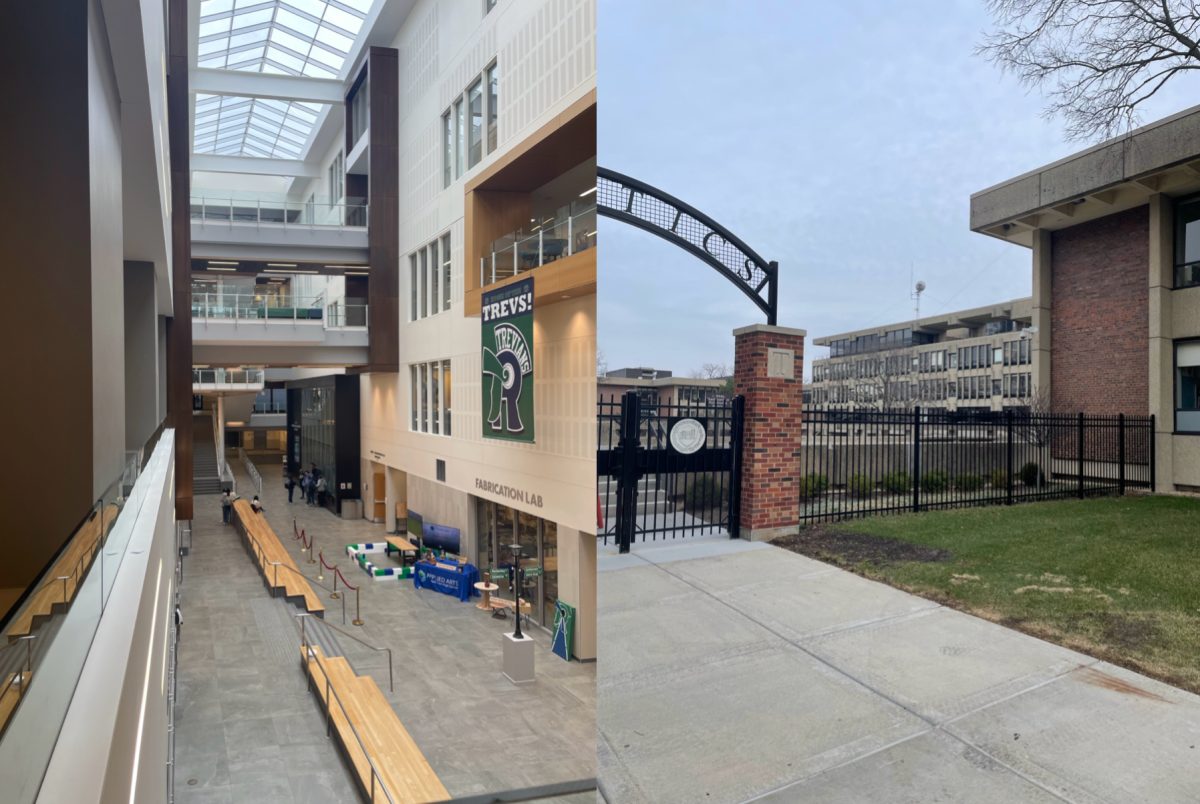This year, New Trier’s Applied Arts Department added a new course to its repertoire—International Food. This class has been popular, featuring four class sections this year. International Foods is different from the other culinary courses at New Trier—Creative Cuisine and Gourmet Foods—because the foods students cook are centered on what culture and influence is being studied in class.
International Foods was added because of the Applied Arts departments’ vision to offer more interesting and diverse courses.
The goal of these courses is to further students’ interests and open up new possible career paths. “We strongly believe that learning diversity about other cultures is also part of our mission as a department. Our culinary instructors felt strongly that New Trier students can benefit from an International foods course,” concluded Department Chair Jason Boumstein.
Despite this being the course’s first year, many students were eager to try it. Senior Elizabeth Leavey confessed, “I wanted to sign up for the International Foods course, especially because it is my senior year and I haven’t taken any culinary courses; unfortunately, my schedule didn’t have room for it.” Outside of culinary courses, Applied Arts is also expanding other areas of its department. “You can see this firsthand with our newer courses such as Human Growth and Child Development, Project Lead the Way Engineering Courses, and our Architectural course sequence,” continued Boumstein.
Many students are confusing the addition of International Foods with Gourmet Foods, yet the two courses are actually very different.
Gourmet foods, offered only to sophomores and juniors, focuses on different types of gourmet cooking techniques, how and when to apply these techniques, and the differences between these techniques.
“Students learn techniques such as baking, dry heat, moist heat, and combination cooking. Those cooking methods are then used throughout the year to alter foods in the units including fruits, vegetables, grains, proteins, and dairy,” explained Department Chair Jason Boumstein. At the end of the year, students have a unit on current food trends and how to apply these trends to what they have learned throughout the course.
On the other hand, according to Boumstein, students “cook their way around the world” in International Foods by exploring new cultures and countries. Students cook and bake traditional recipes from these regions and learn about how these cultures and regions influence their cuisine. Since this course is only offered to seniors it wraps up with a unit on cooking in college.
Cooking and baking are not the only things that students do to fill their forty minutes in International Foods. They also spend time learning about the various cultures and countries from which they cook up cuisine. Teachers initiate discussions about these cultures and countries that spark students to ask questions and explore more about where the foods they make come from.
Examples of foods that students create are scones and trifles from the British Isles, pierogi from Poland, spanikopita and baklava from the Mediterranean, pot stickers from China, and guacamole and chicken fajitas from Mexico.
Despite Gourmet Foods and International Foods having limited enrollment by grade, the Applied Arts Department believes in a no-prerequisite policy for culinary classes. “It is our belief and mission that all students at New Trier should have access to an experience with learning about foods. Seniors who want to experience culinary arts for the first time should have access to it,” explained Boumstein.



